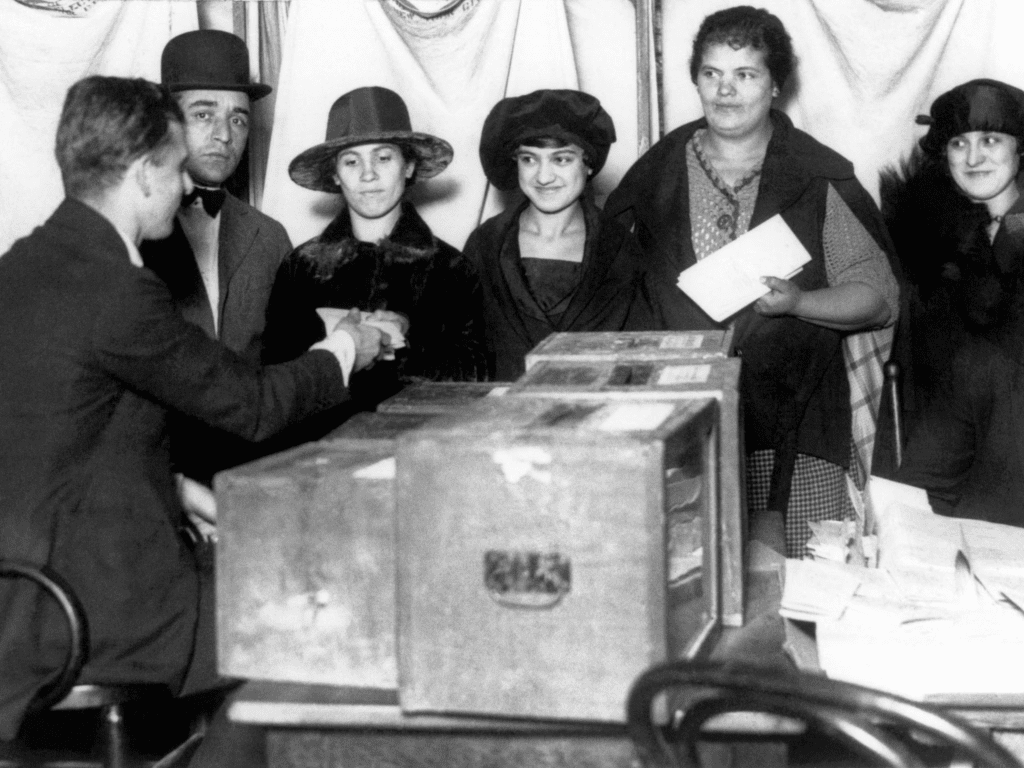In the rugged heart of the American West, a quiet revolution took place one that would forever change the course of democracy in the United States. Long before the 19th Amendment granted women the right to vote nationwide, one state stepped forward without waiting for permission. In 1890, Wyoming entered the Union with a bold promise: to protect a woman’s right to vote. And it never looked back.
Wyoming’s decision was not a symbolic gesture or a temporary experiment. It was a firm and deliberate move that reflected the state’s belief in fairness and justice. This action earned Wyoming the nickname “The Equality State,” and its commitment to women’s rights became a defining part of its identity.

The Roots of Equality in the American Frontier
To understand why Wyoming took such a progressive step, it helps to look at its frontier spirit. Life in the territories was tough. Men and women alike worked the land, braved harsh weather, and built communities from the ground up. There was little room for outdated ideas about who should or should not have a voice.

In 1869, while still a U.S. territory, Wyoming passed the first law in American history granting women the right to vote. The move stunned the rest of the country. Critics thought it was political theater or a publicity stunt. But to the people of Wyoming, it made sense. Women were helping build society just like men. Why shouldn’t they help shape its laws?
This bold act meant that when Wyoming applied for statehood in 1890, it already had women voters and leaders. And the territory was not about to give that up.
Video:
The State of Equality: Wyoming Women Get the Vote
Statehood With No Compromise
When Wyoming submitted its application to join the Union, Congress hesitated. Some members were uncomfortable with the idea of a state where women voted. But Wyoming refused to compromise. In response, the state’s legislature reportedly declared, “We will remain out of the Union a hundred years rather than come in without the women.”
That unwavering stance paid off. Wyoming was admitted as the 44th state of the United States on July 10, 1890, and it kept its promise to its citizens both men and women. It became a model of conviction and integrity, choosing principle over politics.

Women Who Made History in Wyoming
Wyoming did more than just give women the vote. It gave them power. In 1870, Esther Hobart Morris became the first female justice of the peace in American history, serving in South Pass City, Wyoming. Her appointment was more than symbolic; it was a sign that women could take on roles of leadership and responsibility.
Morris’s legacy still echoes today, and she is remembered as one of the pioneering figures in America’s long struggle for gender equality. Her story began in Wyoming, a state that believed in her when most of the country still did not.

A Legacy That Inspires Generations
More than a century later, Wyoming’s early commitment to women’s rights remains a point of pride. The state’s identity as “The Equality State” is more than just a slogan. It reflects a legacy of inclusion and a determination to stand up for what is right, even when others hesitate.
Video:
How Women in Wyoming Are Fighting to Boost Representation | WSJ
Wyoming’s leadership paved the way for other states to follow. It showed the nation that equality was not just an abstract ideal it could be a lived reality. And it reminded America that the frontier spirit was not just about survival. It was about progress.
Conclusion: A Promise That Shaped a Nation
Wyoming did not wait for approval from Washington. It made a promise to its people, and it kept it. The state’s decision to champion women’s voting rights in the 19th century set a powerful example for the rest of the country. It proved that change does not always come from the top down. Sometimes, it begins with a community that sees clearly what is just and refuses to turn away from it.
The story of Wyoming is the story of courage, clarity, and commitment to equality. It is a story worth remembering—not just as history, but as a call to keep pushing forward, together.


